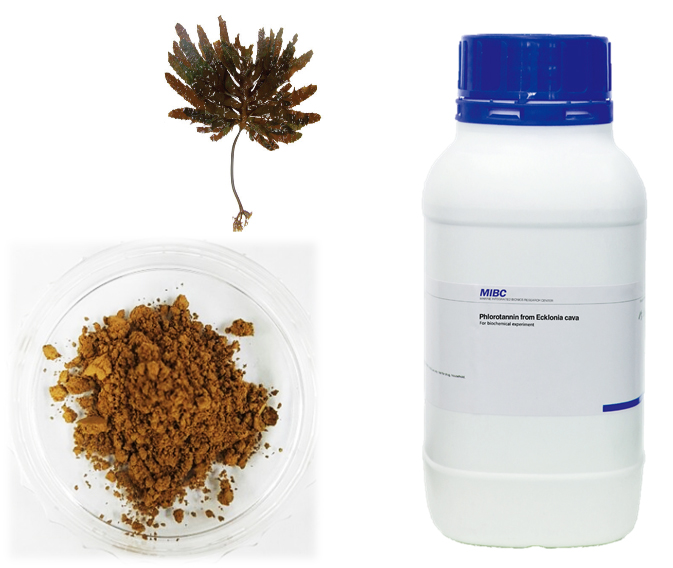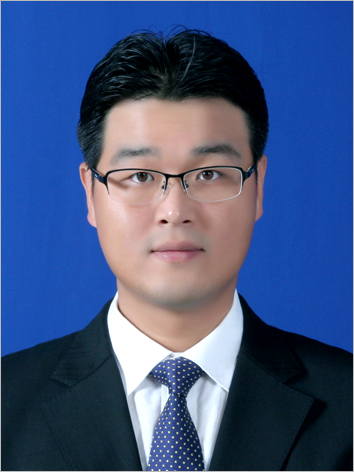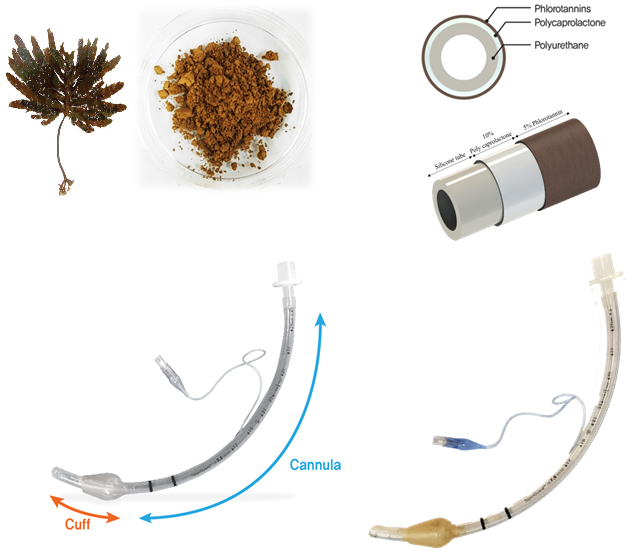Touching Tomorrow atPukyong National University
NEW BEGINNING, NEW INSPIRATION
Pukyong Today List
| 25 Hours of Pukyong Lab. | Prof. Jeong won-kyo | |||
| WRITER | Department of External Cooperation | WRITE DAY | 2021-01-22 |
| COUNT | 321 | ||
| 25 Hours of Pukyong Lab. | Prof. Jeong won-kyo | |||||
 |
Department of External Cooperation |  |
2021-01-22 |  |
321 |
|
’Marine algae, Ecklonia cava Extracts’ ... inhibitory effect on asthma On the 30th of last month, the newspaper introduced that "the marine bio market, which uses natural substances extracted from marine organisms as medicines, is attracting public attention," and introduced the research results of three marine biologics, including Professor Jeong Won-kyo, Professor Cha Hyung-joon of POSTECH, and Dr. Choi Yong-doo of the National Cancer Center. The newspaper said, "The research team of Professor Jeong Won-kyo of the Department of Biomedical Engineering at Pukyong National University found that the Phlorotannin extracted from Ecklonia cava has the effect of suppressing asthma. Previously, an anticancer drug called mitomycin C was prescribed, but there were side effects such as vomiting, diarrhea, and a lower immune function. Ecklonia, which is used for food, can minimize these side effects, and it is expected that it can be used in various medical devices, such as vasoocclusion and airway obstruction." According to Professor Jeong Won-kyo, the research team (joint research of Pukyong National University and Kosin University) investigated the mechanism of suppression of asthma of seaweed Ecklonia cava extract and proved its effectiveness in animal models. Asthma refers to a phenomenon in which the respiratory tract becomes narrowed or blocked due to an inflammatory response. Professor Jeong said, "The extract of Ecklonia cava, a natural material, is evaluated to be able to replace the existing market as it can minimize side effects such as a lower immune function, vomiting, and diarrhea compared to drugs previously used to prevent airway constriction." The results of this research were published in the ’International Journal of Tissue Engineering and Regenerative Medicine Society’, and intellectual property rights for the original technology were also secured through domestic and international patent applications and registrations (2017, 2019). This marine biomaterial, developed by Professor Jeong’s research team, is expected to be applied in various ways to high value medical materials such as catheter*, stent**, and anti-adhesion*** . Professor Jeong said, "The technology transfer was completed in 2016 to Cowell Medi, a medical device manufacturer. Currently, non-clinical toxicity and efficacy tests have been completed, and data on clinical efficacy and safety are being prepared through human application tests." * It refers to an insertion tube used for the purpose of securing airways for discharge of secretions in the trachea, injection of chemicals, and insertion of sensors. The newspaper also introduced the research results of Cha Hyung-joon, a research team from Department of Chemical Engineering of POSTECH (Pohang University of Science & Technology), which promotes the development of bio-adhesives as an adhesive component of mussels, and Dr. Choi Yong-doo’s research team at the National Cancer Center, which developed fluorescent markers for cancer surgery using brown algae extracts such as seaweed. The newspaper said, "Marine life is about 330,000 species, accounting for about 80% of the total species. This means that there is a high possibility of finding new materials in marine life in the future," and added, "Korea also began researching marine life in earnest from the early 2000s. Previously, health functional foods were the main focus, but in recent years, and showing results in the overall bio-health field such as medical devices and new drugs." <Pukyong Today> |

 Professor Jeong Won-kyo of Pukyong National University (Department of Biomedical Engineering)’s research achievements were introduced in the Dong-A Daily News as a representative marine bio research achievement and attracted people’s attention.
Professor Jeong Won-kyo of Pukyong National University (Department of Biomedical Engineering)’s research achievements were introduced in the Dong-A Daily News as a representative marine bio research achievement and attracted people’s attention.